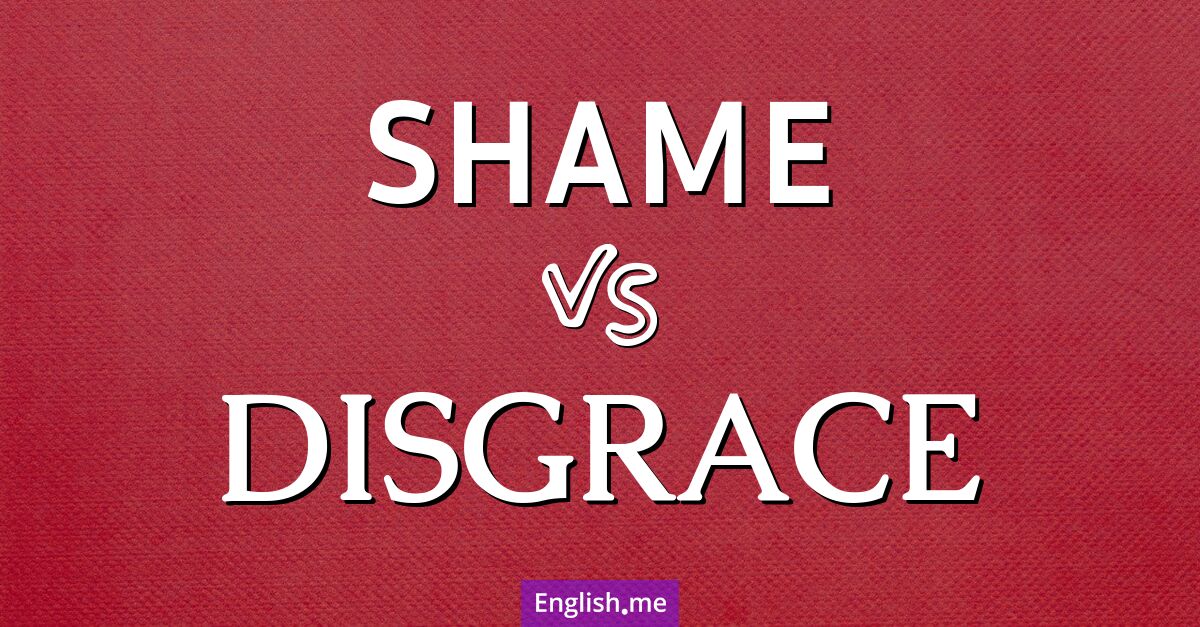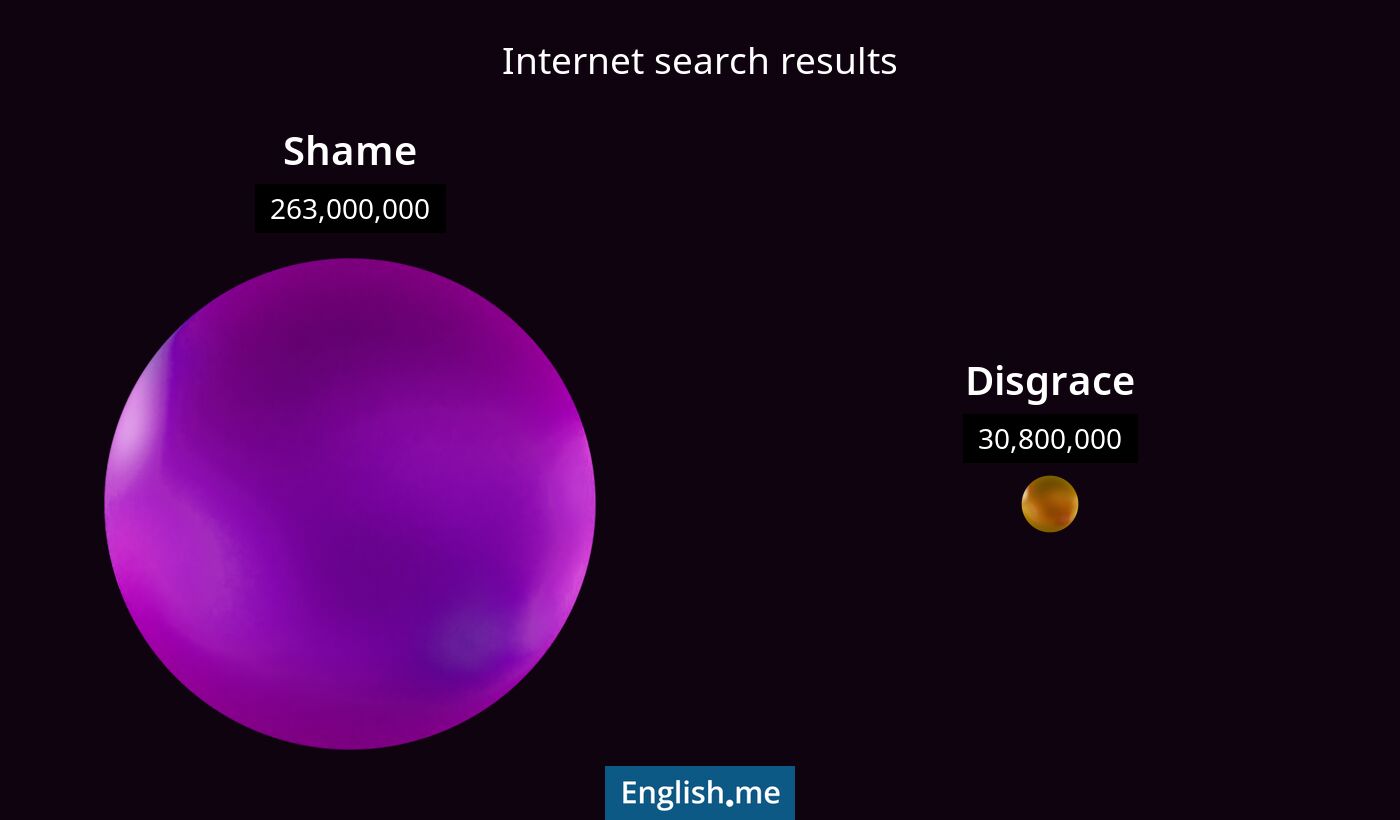"Shame" vs. "disgrace": nuances of embarrassment and dishonor
Reviewed and edited by  Anwar Kareem 22/06/2025, 02:01
Anwar Kareem 22/06/2025, 02:01
English.me team member

 What is similar?
What is similar?
Both "shame" and "disgrace" refer to negative feelings or states associated with loss of respect, honor, or esteem, typically due to an action that is considered wrong or improper.
 What is different?
What is different?
"Shame" usually focuses on the internal emotional response someone feels due to their own actions or perceived faults, while "disgrace" more often refers to an external condition where someone's reputation is damaged in the eyes of others.
 Which one is more common?
Which one is more common?

 Examples of usage
Examples of usage
Shame- She felt deep shame after lying to her friend.
- His face turned red with shame.
- The shame of failing the test stayed with him for weeks.
- The politician left office in disgrace after the scandal.
- Cheating in the competition brought disgrace to the team.
- He was disgraced in front of his peers for breaking the rules.

 English
English español
español française
française italiano
italiano deutsche
deutsche 日本語
日本語 polski
polski česky
česky svenska
svenska Türkçe
Türkçe Nederlands
Nederlands